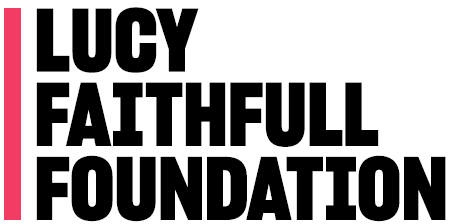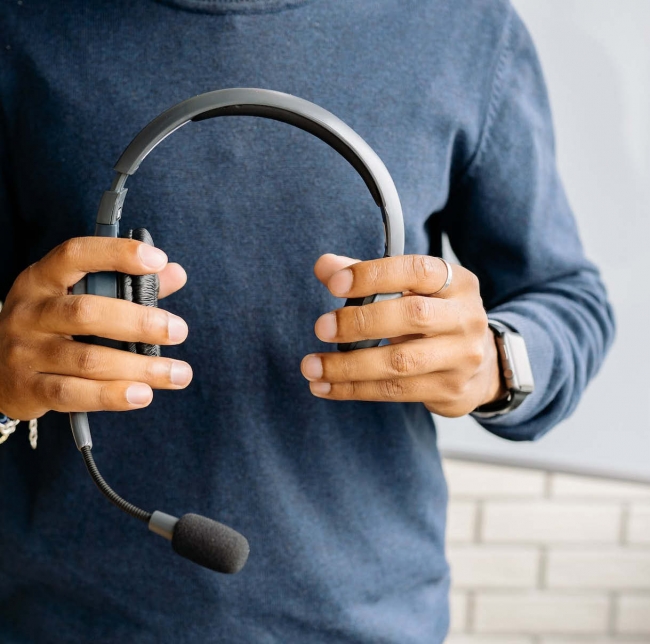New study finds reduced viewing of sexual images of children after online CBT
By Dr Alexandra Bailey, Forensic Psychologist at The Lucy Faithfull Foundation and lecturer at Goldsmiths, University of London.
Estimates from law enforcement suggest there are tens of thousands of people viewing sexual images of children online in the UK. The scale is such that police have said that we can’t arrest our way out of the problem.
Our helpline and online self-help support people to stop this behaviour. And now, new research from the Karolinska Institutet in Sweden has reported that internet-delivered anonymous cognitive behavioural therapy (CBT) can reduce the viewing of sexual images of children.
How did the study work and what did it find?
- Participants (157 men, two non-binary and one without reported gender identity) were randomly assigned to either CBT treatment or a psychological non-CBT placebo group.
- Over eight weeks of the therapy, participants were asked to report how much they viewed child sexual abuse material every week.
- Researchers examined all data collected during the treatment, including from individuals who only participated in parts of it, and analysed how the change in viewing differed between the groups.
- The result showed that both groups reduced their viewing, with a small but statistically significant advantage for the CBT group.
- Roughly half of the participants in both groups who submitted data at eight or twelve weeks reported not having viewed sexual images of children during the previous week.
Why is the research important?
Approaches like the one taken by the Karolinska Institutet can help address the problem and research like this means we can learn what works best to prevent online child sexual abuse.
This study gives a promising start to recognising the benefits of providing online, anonymous help to people viewing sexual images of children, to support them to stop. The RCT has a blind aspect, something rarely seen in this field and is useful for counteracting potential bias, which helps improve the quality of the research.
The iCBT model and placebo did both appear to result in positive behaviour change, particularly in terms of weekly viewing of sexual images of children. Although a small difference between the intervention groups was found, it still gives an overall early indication of the benefits of providing intervention with this group of individuals.
This is something we have felt for a while, which is why we’ve provided our own CBT-based approach – Get Help – for anonymous online use since 2015. What we have also noticed with Get Help, which comes across in this article, is the benefit of the participant communicating with a professional. Research shows that accountability can be a useful tool in managing online behaviour and the presence of a professional can help with this.
What are the caveats?
While this research is important and there are positives, this is at an early stage and more work would be needed to solidify these results. There are also some caveats.
- Behaviour is self-reported, so this means that participants are able to lie, but the anonymous nature of the research means that they are less incentivised to.
- The participants were a subgroup of individuals who view sexual images of children i.e. Darknet users with paedophilic disorder. People who sexually offend against children, including online, are a diverse group and come from all backgrounds and walks of life and many offend on the open web. So not all people who offend will be using the Darknet or meet the criteria for paedophilic disorder. Further work should be done to consider the effectiveness of online interventions with other groups.
- For scientific research this is a small sample size, but for the area of research this is a good number of participants. However, there were high attrition rates.
- The follow-up time is short. Viewing sexual images of children can be a long-term behaviour - people can stop for periods of time, and then go back. Having longer follow-ups would give a better idea of the long-term effectiveness of these types of online interventions.
What are we doing in this field?
We know from working with men who have offended online that they come from all backgrounds and walks of life, and don’t conform to the stereotypes. These men often have no long-standing sexual interest in children, but tell us they started viewing sexual images of children through an escalating legal pornography habit that has become more extreme.
Some men can be supported to stop offending and our anonymous helpline, online self-help and evidence-based programmes give them ways to do this.
Just as important as helping people to stop offending is stopping people from offending in the first place. We work with police forces, health and other organisations across the UK to raise awareness that viewing sexual images of under-18s is illegal, causes huge harm to victims, and can have life-changing consequences to the offender – including possible arrest, imprisonment and loss of family.
If you have concerns about your online sexual behaviour or the behaviour of someone you know contact the Stop It Now! helpline on 0808 1000 900.
Sign up for news & updates
Fill in our newsletter form hereTo support our work to protect children, donate today.
Donate today






